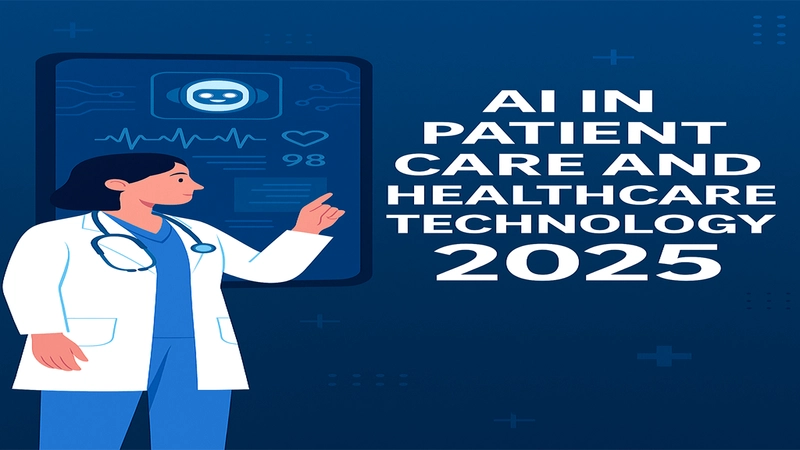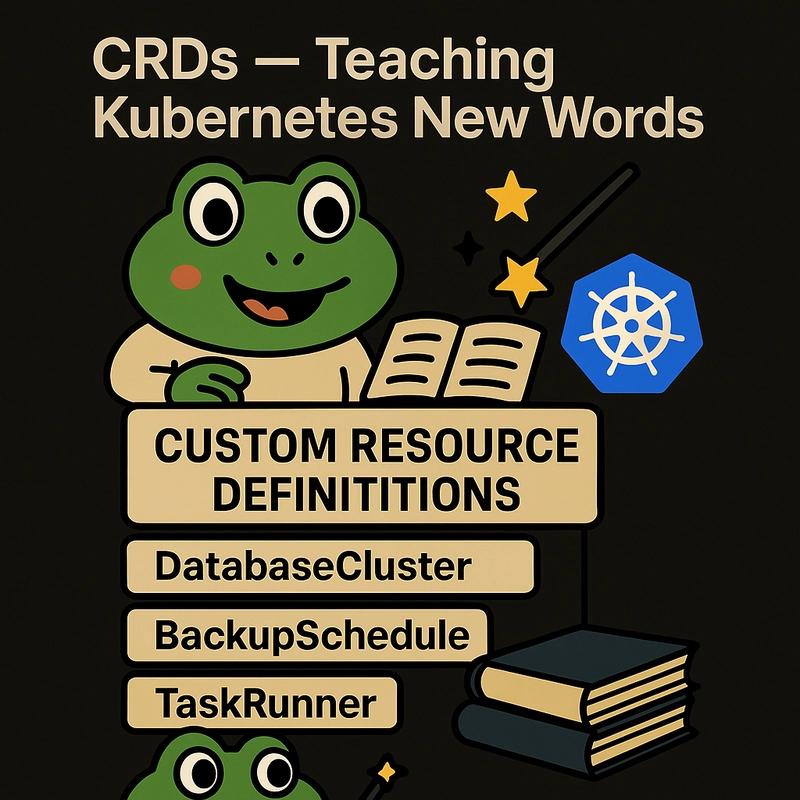AI in Patient Care and Healthcare Technology 2025: Revolutionizing Diagnosis and Treatment
Introduction AI in patient care and healthcare technology 2025 is no longer a futuristic vision—it's today’s reality. As healthcare systems across the globe continue to embrace digital transformation, artificial intelligence (AI) is playing a central role in enhancing patient outcomes, reducing costs, and optimizing operational efficiency. From predictive diagnostics to robotic surgeries, AI is redefining the way care is delivered and received in 2025. 1. Predictive Diagnostics: From Data to Life-Saving Insights AI algorithms can now analyze patient histories, lab results, and genetic profiles to predict diseases before symptoms even appear. Hospitals in India and globally are implementing AI-driven systems for early detection of cancers, heart conditions, and neurological disorders—saving lives through timely interventions. 2. Personalized Patient Care Plans With the help of AI, doctors can tailor treatment plans based on individual health data, lifestyle, and even genomic factors. In 2025, personalized medicine powered by machine learning ensures treatments are more effective and less invasive, dramatically improving patient satisfaction and outcomes. 3. AI-Enabled Virtual Health Assistants AI-powered chatbots and virtual nurses are guiding patients through medication management, symptom tracking, and appointment scheduling. These assistants operate 24/7, reducing the burden on healthcare staff while providing immediate support to patients. 4. AI in Medical Imaging and Diagnostics Radiologists are using AI tools to detect abnormalities in X-rays, MRIs, and CT scans with astonishing precision. In 2025, AI can detect patterns invisible to the human eye, resulting in faster and more accurate diagnoses, especially in rural or under-resourced healthcare settings. 5. Robotic Surgery and Minimally Invasive Procedures Surgical robots guided by AI assist surgeons with greater accuracy, reducing risks and recovery times. In India, many leading hospitals have adopted robotic systems for complex procedures in cardiology, orthopedics, and oncology. 6. AI in Mental Health Support AI-based mental health apps in 2025 offer CBT (Cognitive Behavioral Therapy), track user mood, and provide real-time feedback. These solutions are breaking the stigma around mental health by offering accessible, anonymous help. 7. Real-Time Health Monitoring with AI and IoT Wearables and IoT devices integrated with AI continuously monitor vital signs and send alerts in real-time. This proactive approach is especially useful for managing chronic conditions like diabetes, hypertension, and COPD. 8. Ethical Considerations and Data Privacy While AI offers immense benefits, 2025 also raises questions about data security, patient consent, and algorithm bias. Ethical AI frameworks are being developed to ensure fairness and transparency in healthcare delivery. 9. Case Study: AI in Indian Healthcare Systems India is leveraging AI for telemedicine, diagnostics, and resource optimization in government hospitals. Startups and tech giants are collaborating with public institutions to make AI accessible even in tier 2 and tier 3 cities. 10. The Road Ahead: What to Expect Beyond 2025 As quantum computing and edge AI evolve, expect real-time analysis, decentralized healthcare models, and intelligent decision support systems to transform patient care further. Conclusion In 2025, AI is not just an enabler in patient care—it is a game-changer. By streamlining diagnosis, enhancing personalized treatment, and providing real-time assistance, AI in patient care and healthcare technology 2025 is improving lives, reducing medical errors, and optimizing healthcare delivery. However, to maximize its potential, stakeholders must work together to ensure ethical implementation, robust data protection, and equitable access. The fusion of human empathy with machine intelligence holds the key to a healthier, smarter future. Source - https://tagbin.in/ai-in-patient-care-and-healthcare-technology/

Introduction
AI in patient care and healthcare technology 2025 is no longer a futuristic vision—it's today’s reality. As healthcare systems across the globe continue to embrace digital transformation, artificial intelligence (AI) is playing a central role in enhancing patient outcomes, reducing costs, and optimizing operational efficiency. From predictive diagnostics to robotic surgeries, AI is redefining the way care is delivered and received in 2025.
1. Predictive Diagnostics: From Data to Life-Saving Insights
AI algorithms can now analyze patient histories, lab results, and genetic profiles to predict diseases before symptoms even appear. Hospitals in India and globally are implementing AI-driven systems for early detection of cancers, heart conditions, and neurological disorders—saving lives through timely interventions.
2. Personalized Patient Care Plans
With the help of AI, doctors can tailor treatment plans based on individual health data, lifestyle, and even genomic factors. In 2025, personalized medicine powered by machine learning ensures treatments are more effective and less invasive, dramatically improving patient satisfaction and outcomes.
3. AI-Enabled Virtual Health Assistants
AI-powered chatbots and virtual nurses are guiding patients through medication management, symptom tracking, and appointment scheduling. These assistants operate 24/7, reducing the burden on healthcare staff while providing immediate support to patients.
4. AI in Medical Imaging and Diagnostics
Radiologists are using AI tools to detect abnormalities in X-rays, MRIs, and CT scans with astonishing precision. In 2025, AI can detect patterns invisible to the human eye, resulting in faster and more accurate diagnoses, especially in rural or under-resourced healthcare settings.
5. Robotic Surgery and Minimally Invasive Procedures
Surgical robots guided by AI assist surgeons with greater accuracy, reducing risks and recovery times. In India, many leading hospitals have adopted robotic systems for complex procedures in cardiology, orthopedics, and oncology.
6. AI in Mental Health Support
AI-based mental health apps in 2025 offer CBT (Cognitive Behavioral Therapy), track user mood, and provide real-time feedback. These solutions are breaking the stigma around mental health by offering accessible, anonymous help.
7. Real-Time Health Monitoring with AI and IoT
Wearables and IoT devices integrated with AI continuously monitor vital signs and send alerts in real-time. This proactive approach is especially useful for managing chronic conditions like diabetes, hypertension, and COPD.
8. Ethical Considerations and Data Privacy
While AI offers immense benefits, 2025 also raises questions about data security, patient consent, and algorithm bias. Ethical AI frameworks are being developed to ensure fairness and transparency in healthcare delivery.
9. Case Study: AI in Indian Healthcare Systems
India is leveraging AI for telemedicine, diagnostics, and resource optimization in government hospitals. Startups and tech giants are collaborating with public institutions to make AI accessible even in tier 2 and tier 3 cities.
10. The Road Ahead: What to Expect Beyond 2025
As quantum computing and edge AI evolve, expect real-time analysis, decentralized healthcare models, and intelligent decision support systems to transform patient care further.
Conclusion
In 2025, AI is not just an enabler in patient care—it is a game-changer. By streamlining diagnosis, enhancing personalized treatment, and providing real-time assistance, AI in patient care and healthcare technology 2025 is improving lives, reducing medical errors, and optimizing healthcare delivery. However, to maximize its potential, stakeholders must work together to ensure ethical implementation, robust data protection, and equitable access. The fusion of human empathy with machine intelligence holds the key to a healthier, smarter future.
Source - https://tagbin.in/ai-in-patient-care-and-healthcare-technology/












































































